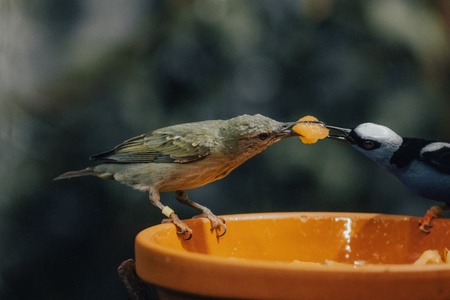Scientists typically predict how species evolve by looking at their genes and the environment they live in, but new research from the University of Aberdeen has highlighted a key factor that's often overlooked: social interactions, where the genes of others play a major role in shaping the the environment an animal experiences.
Researchers from the University, in collaboration with teams from the University of Exeter and Bielefeld University, analysed 47 studies covering a wide range of animal species and found that while these ‘social genetic effects’ are small on their own, when many interactions occur it can greatly increase the potential speed of evolution.
The most noticeable impact was on behaviours and reproductive traits, suggesting these characteristics could evolve much more rapidly compared to physical traits like body shape, or physiological traits like metabolic functions. This discovery could change the way scientists think about how certain traits evolve, especially in social species who regularly interact with each other.
Dr David Fisher from the University of Aberdeen’s School of Biological Sciences, said: “Evolution is the fundamental process underpinning biodiversity of earth, and so we need to understand how it works. While nearly all animals—whether they live in groups or alone—engage in social interactions at some point in their lives, the importance of these interactions for evolution has not been systematically measured before.
“For this study, we covered social interactions of all kinds - we were ultimately interested in the quantification of how much one individual is influenced by others. For instance, we looked at past work studying fighting in cattle and field crickets, pecking in captive chickens, interactions in breeding pairs of birds, mating interactions in fruit flies, and cooperative breeding in cichlid fish. This provided us with a unique overview as one study alone finding an interesting effect of social interactions is great, but it is so much more powerful that we can combine nearly 200 measures and and show these effects are consistent in laboratory and field studies and across all kinds of animals. Our approach lets us make more general conclusions about how evolution works than is possible from any one study."
“By showing that most animals experience social interactions which contribute substantially to the potential for evolution, predominantly when it comes to behaviours and reproductive characteristics, we greatly revise our understanding of how evolution works. Going forward, this will influence our predictions for how animals evolve, both in captive settings such as when trying to breeding more productive livestock in captivity to understanding how animals in the wild respond to new pressures in human-altered environments.”
The study is published in Evolution Letters.


